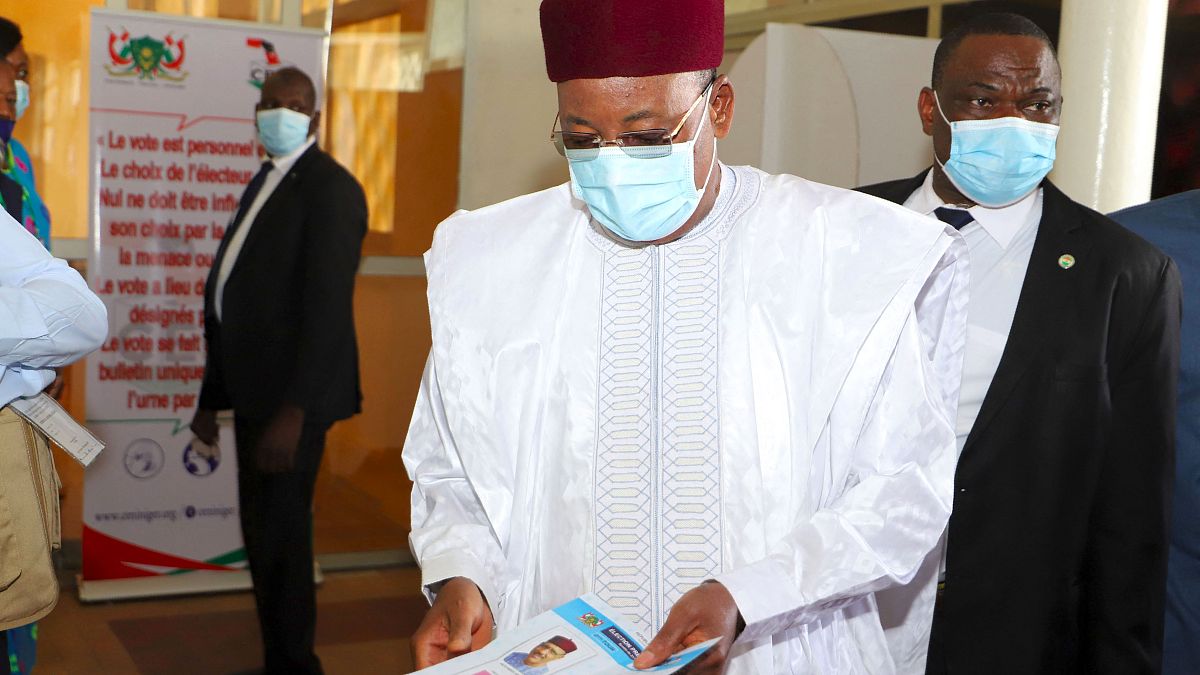Deadly violence struck the elections in Niger, where voters returned to polls on Sunday for the second round of voting in presidential elections.
Deadly violence struck Niger's presidential elections on Sunday when seven members of the National Electoral Commission were killed when their car hit an explosive device, the government announced.
Three others were severely injured in the explosion which occurred in Gotheye village in the Tillaberi region in the country’s west, Addine Agalass, an advisor to Tillaberi’s governor told The Associated Press by phone.
The attack happened while Nigeriens were nearly finished voting in the second round of the country’s presidential elections. It’s unclear if it was intended to target the electoral commission officials or if it was related to the election, said Agalass.
The West African nation has been battling rising attacks by Islamic extremists for years and Niger experts had warned that Sunday’s elections could see violence.
Polls opened on Sunday morning for a second round of voting after the 28 candidates in December’s vote failed to win an absolute majority.
Former foreign affairs minister Mohamed Bazoum, who received around 39% of the vote in the first round, is running against former president Mahamane Ousmane, who got nearly 17% of the vote, according to the National Independent Electoral Commission.
The winner of Sunday's vote will succeed President Mahamadou Issoufou - the leader is stepping down after serving two terms, in accordance with Niger's constitution.
Issoufou's decision to respect the constitution has been widely hailed and paves the way for Niger's first peaceful, democratic transfer of power since its independence from France in 1960. The West African nation has seen four coups.
Issoufou's chosen successor is Bazoum, 71, a longtime Cabinet minister who is from Niger's small ethnic Arab minority.
Of Niger's 23 million people, around 7.4 million are registered to vote. In the parliamentary and presidential elections that took place on December 27, turnout was approximately 67%.
Niger’s next president will have to deal with major problems, including rising attacks linked to Islamic extremists.
In January at least 100 people were killed when extremists attacked two villages near the border with Mali.
Thousands of people have been killed and hundreds of thousands displaced despite the presence of thousands of regional and international troops.
The candidates are trying to entice voters through various campaign promises.
A teacher by training, Bazoum, who is of the ruling Nigerien Party for Democracy and Socialism, has promised to build boarding schools for girls to encourage them to remain in school longer, which he said would help reduce child marriage in a country with many teenage pregnancies.
But peace is what locals say they really want from the country’s next leader.
